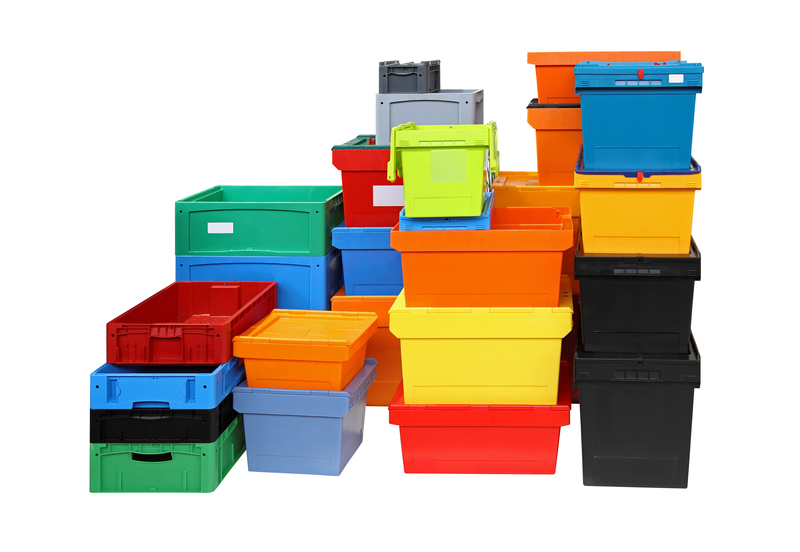Storing Freezers Unused: What Every Homeowner Should Know
Are you planning to leave your freezer unused for an extended period? Whether due to downsizing, remodeling, or just a lack of need, storing a freezer safely and correctly during unused periods is essential. An idle freezer may seem harmless, but improper storage can lead to odors, mold, inefficiency, or even equipment damage when you need it again. This comprehensive guide dives deep into the best practices for storing freezers unused, ensuring longevity, energy efficiency, and readiness when you're ready to fill it with frozen goods again.
Why Properly Storing Your Unused Freezer Matters
A freezer is a significant investment, and mishandling it during periods of non-use can lead to costly repairs or even the need for complete replacement. There are several risks associated with leaving a freezer unused without taking the necessary steps:
- Odor Development: Residual food particles or moisture can cause foul odors to develop inside the cavity.
- Mold and Mildew Growth: A sealed, damp environment fosters microbial growth.
- Mechanical Malfunction: Sitting idle, especially in suboptimal conditions, can damage the compressor and other components.
- Reduced Lifespan: Failing to winterize or store properly can shorten your freezer's life.
By following the right steps, you can prevent these issues, saving money and hassle down the line.

Steps to Prepare Your Freezer for Storage
Before you unplug your freezer and tuck it away, preparation is key. Here's what every homeowner should do:
1. Remove All Contents
- The first step in storing a freezer unused is to remove all food and ice from the compartment. Even a small ice packet can melt and cause moisture problems.
2. Defrost and Clean Thoroughly
- Defrost the freezer by unplugging it and leaving the door open for several hours.
- Once completely thawed, wipe away any water with towels.
- Wash the interior with a gentle solution of baking soda and warm water to neutralize odors and clean any spills.
- Dry interior surfaces thoroughly with a separate clean towel to avoid mold growth.
3. Clean Door Seals and Exterior
- Don't forget the gasket (door seals), where grime often accumulates. Wipe them down with a mild detergent.
- Clean the exterior of the freezer to remove dust and dirt.
4. Air and Dry Completely
- It's crucial the freezer is completely dry before storing. You can place a small fan inside for several hours, or simply let it air out naturally with the door open for 24-48 hours.
5. Leave the Door Ajar
- When placing your freezer in storage, always leave the door slightly open. This prevents moisture buildup, musty odors, and allows air circulation, making it less hospitable for mold and mildew.
6. Store in a Suitable Location
- For unused freezer storage, choose a cool, dry environment--ideally indoors. Avoid storing your freezer in high-humidity places, outdoors, or anywhere prone to wide temperature fluctuations.
- If only a garage or shed is available, make sure the area is weatherproof and, if possible, slightly climate-controlled.
Summary Checklist for Storing Freezers Unused
- Remove all food and ice
- Thaw/defrost completely
- Clean and disinfect interior/exterior
- Dry thoroughly
- Store with the door ajar
- Choose a dry, temperate storage location
Additional Tips for Storing Freezers Unused
Protect Against Pests
- Pests may seek dark, enclosed spaces like an unused freezer. Placing odor-absorbing baking soda or activated charcoal inside, and checking surrounding areas for pest activity, can help prevent infestations.
Cover and Elevate
- While the freezer doesn't typically need a cover if it's stored inside, a breathable, loose-fitting cover can protect against dust if you're storing the freezer for months or years.
- Placing the freezer on blocks or a platform can avoid moisture absorption from the floor and helps air to circulate underneath.
Maintain the Seal
- To prevent the door seal (gasket) from sticking or warping, apply a little petroleum jelly along the edge before storage.
- Regularly check the seal if possible, to ensure its flexibility and integrity.
Check Periodically
- If you're storing the freezer unused for a year or more, try to check on it every few months. Look for any signs of mildew or pest infestation and address immediately to prevent long-term damage.
Label Cords and Controls
- Label the power cord and any removable parts, such as shelves or baskets, so you know where everything goes when you reconnect the appliance after storage.
Important Precautions When Storing Freezers Unused
- Never store a plugged-in freezer when empty: This wastes energy and can damage the compressor if the coolant has nowhere to go.
- Do not store on its back or side: Storing your freezer upright helps avoid oil flowing into the cooling lines, which can cause operational issues.
- Verify warranty terms: Some warranties require periodic running or maintenance, so check your manufacturer's guidelines regarding extended storage.
Preparing to Reuse Your Stored Freezer
When you're ready to bring your freezer back into action, take these steps for a smooth restart:
- Clean and inspect: Wipe down the surfaces to remove dust or odors and check for signs of moisture or pests.
- Restore parts: Replace all baskets, shelves, and bins that were removed for storage.
- Check the door seal: Ensure the gasket is flexible and creates a tight seal.
- Wait before plugging in: If the freezer was moved or transported, allow it to sit upright for several hours (preferably 24 hours) so the compressor oil can settle back into place.
- Start with a test run: Plug in the freezer and let it cool empty for several hours before adding food.
Common Mistakes to Avoid When Storing Freezers Unused
- Sealing the door shut: Trapping moisture and stale air encourages odors and mold.
- Forgetting to clean thoroughly: Even trace amounts of food can cause significant odors and bacterial growth during storage.
- Storing in extreme environments: High heat, freezing cold, or high humidity can cause damage to both exterior and internal components.
- Not checking periodically: Leaving the freezer unattended for long stretches can allow small issues to become major problems.
Frequently Asked Questions About Unused Freezer Storage
Q: How long can I keep my freezer unused and stored?
A: If prepared and stored correctly, most residential freezers can be left unused for months or even years without issue. However, it's wise to check the appliance every few months to avoid unwelcome surprises.
Q: Can I store my unused freezer in the garage?
A: You can, but remember that both heat and prolonged freezing temperatures can damage your appliance. Choose a shaded and weatherproof spot, and ensure the location does not experience drastic temperature or humidity swings.
Q: What is the best way to keep odors away during storage?
A: Clean thoroughly, dry completely, and store the freezer with the door slightly open. Adding an open box of baking soda or a bowl of activated charcoal can also help absorb any potential odors.
Q: Should I disconnect the freezer completely for storage?
A: Yes! Always unplug the appliance before long-term storage to prevent electrical hazards and conserve energy.

Key Takeaways: Storing Freezers Unused
- Give your freezer a thorough cleaning and allow it to dry completely.
- Always store with the door slightly open to prevent mold and odors.
- Choose a dry, moderate environment--avoid damp or highly variable temperature locations.
- Protect against dust, pests, and moisture with covers and proper elevation.
- Revive your freezer safely by cleaning, allowing it to settle upright, and doing a test run before restocking with food.
Conclusion: Storing Freezers Unused the Smart Way
Properly storing your freezer unused isn't just about preventing bad smells. It's a matter of protecting your investment and ensuring this essential appliance is ready for reliable use the next time freezer space is needed. By following the tips and best practices detailed in this guide, you'll save time, money, and effort, keeping your freezer in peak condition no matter how long it remains out of action.
For more household appliance tips, maintenance guides, and home care advice, explore our other articles or contact a local appliance specialist for personal recommendations on your specific freezer model.
If you found this guide on storing freezers unused helpful, please share it with other homeowners and bookmark it for future reference.



